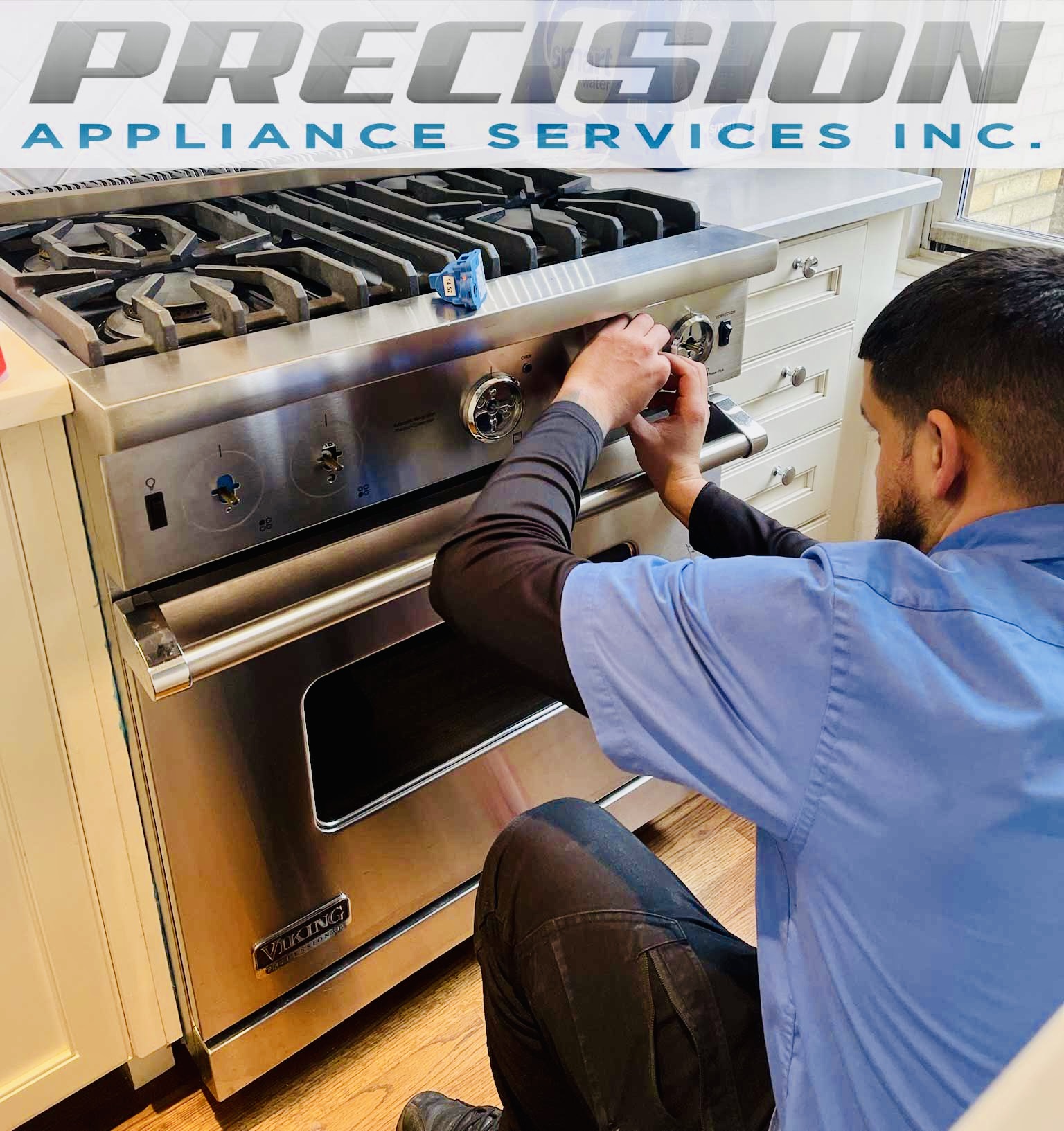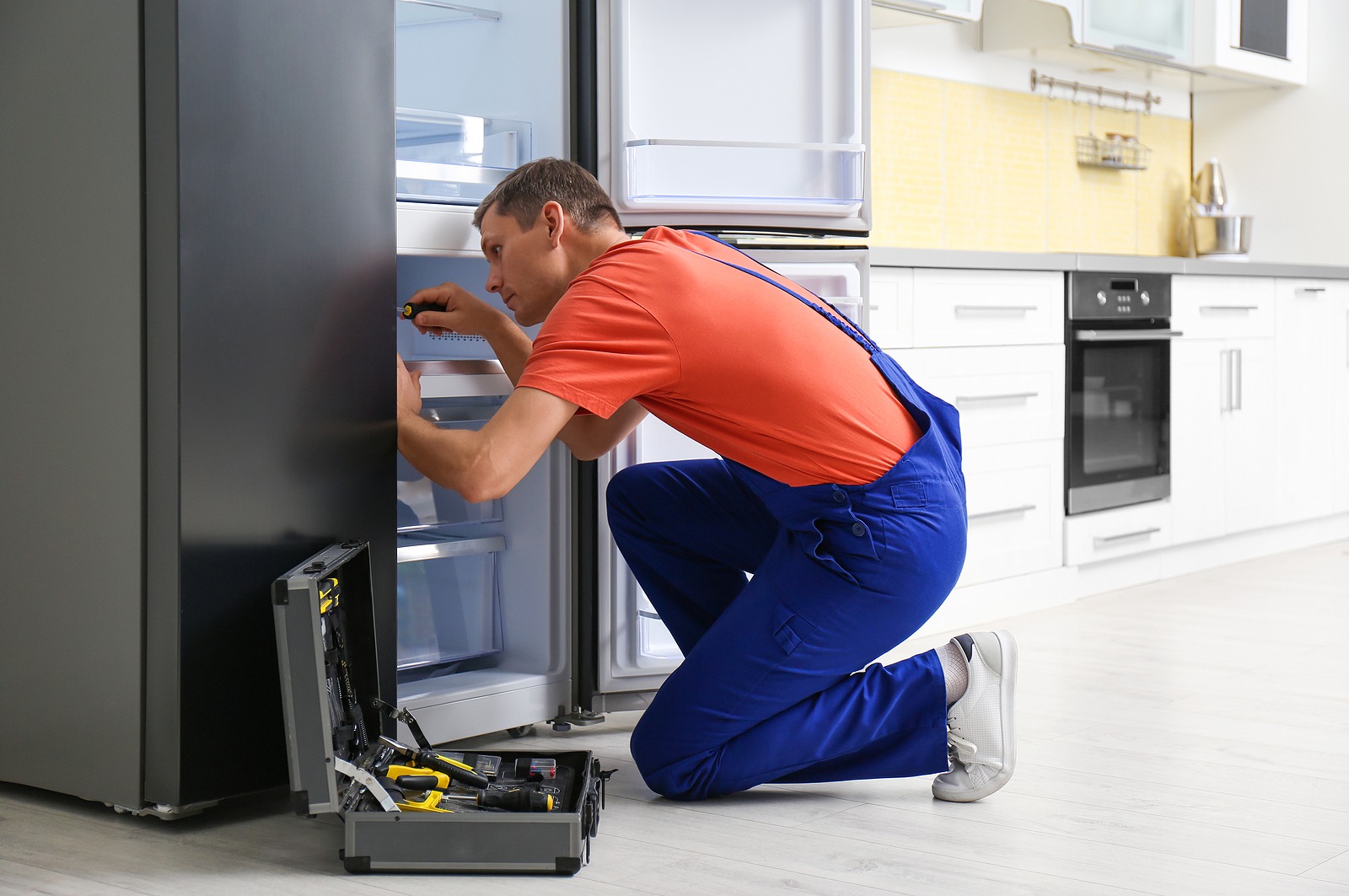Essential Safety Rules for DIY Repairs – Dependable Refrigeration & Appliance Repair Service Dryer repair near me
Essential Safety Rules for DIY Repairs – Dependable Refrigeration & Appliance Repair Service Dryer repair near me
Blog Article
The Ultimate Guide to Recognizing Appliance Repair Work in the house
When your refrigerator stops cooling or your oven refuses to warm, it can really feel overwhelming. Recognizing appliance repair in your home can conserve you money and time. You'll learn to identify symptoms, use crucial devices, and adhere to a systematic troubleshooting procedure. Yet prior to you begin, there are crucial security precautions you need to take right into account. What are one of the most usual issues, and just how can you repair them? Allow's check out the basics.
Typical Device Troubles and Their Symptoms
When your devices start breaking down, it's important to acknowledge the signs beforehand. Neglecting them can lead to bigger issues and pricey repairs. If your fridge isn't cooling effectively, you might observe cozy areas or condensation forming. This could show a falling short compressor or a blocked vent.Your dishwashing machine might reveal troubles with unclean dishes or unusual sounds throughout cycles. If you listen to grinding or clanking, it's time to investigate.A cleaning maker that won't rotate or drain can leave you with soaked laundry, suggesting a clogged up drain or a malfunctioning pump.Lastly, if your oven's temperature level appears off or it takes permanently to pre-heat, you may be handling a faulty thermostat. By remaining sharp to these signs and symptoms, you can address concerns prior to they rise into major repair services.
Essential Devices for Appliance Repair Service
When you're tackling appliance repair work in the house, having the right tools is important. Basic hand tools like screwdrivers and pliers will certainly help you dismantle and fix various appliances, while electric screening gadgets guarantee you're working securely with circuitry. Let's discuss what you need to obtain started on your repair journey.
Fundamental Hand Tools
Having the right tools is important for effective appliance fixing in the house. Beginning with a trustworthy screwdriver set, consisting of both flathead and Phillips kinds, as screws are common in device setting up. Pliers are likewise crucial; they aid with gripping, turning, and cutting wires or tiny elements. A set of needle-nose pliers can get to tight spots conveniently. You'll need an excellent flexible wrench for tightening up or loosening up nuts and bolts. An energy blade comes in handy for reducing via packaging or insulation. Lastly, do not fail to remember a strong workbench or surface to securely arrange your tools and components. With these fundamental hand tools, you'll be well-prepared to take on most device fixings that come your way.
Electric Testing Instruments
Alongside basic hand tools, electrical testing gadgets play a necessary duty in device repair work. These devices help you identify electric problems and assurance home appliances function securely. A multimeter is essential; it measures voltage, existing, and resistance, permitting you to determine problems promptly. A non-contact voltage tester is an additional essential, letting you discover real-time cords without making direct get in touch with, improving your safety and security. Secure meters are excellent for determining current circulation in wires without detaching them, saving you time and effort. Furthermore, circuit testers can quickly examine if electrical outlets are working effectively. By using these devices, you'll improve your troubleshooting procedure and boost your fixing abilities, making device maintenance a great deal much easier.
Step-by-Step Overview to Diagnosing Device Issues
When your appliance acts up, it can be discouraging, yet detecting the issue doesn't have to be overwhelming. You'll learn to identify common problems and apply effective troubleshooting methods. Allow's stroll through the steps to obtain your device back in working order.
Typical Device Issues

Fixing Methods Discussed

Repairing Significant Kitchen Devices: A Closer Look
Have you ever before wondered just how to deal with common issues with your kitchen home appliances? Repairing major cooking area home appliances like refrigerators, stoves, and dishwashing machines can be simpler than you think. Beginning by identifying the problem-- whether it's a refrigerator not cooling or a stove that won't heat. Often, a straightforward reset or inspecting the source of power can solve the issue.For refrigerators, clean the condenser coils and check the door seals. If your stove's not heating, inspect the burner and thermostat. Dishwashers may simply need a tidy filter or a reset to get them back in action. Always disconnect the appliance prior to diving into fixings to ensure your safety.Don' t neglect to consult the customer manual for particular troubleshooting pointers related to your design. With a little bit of perseverance and the right tools, you can confidently take on device repair work and save cash in the look these up process!

Troubleshooting Laundry Appliances: Tips and Techniques
When your laundry devices start acting up, it can feel frustrating, but fixing them does not need to be a problem. Begin by examining the power supply. Validate the appliance is connected in and the electrical outlet is operating. Next, evaluate the door or lid switch; a defective button can prevent the equipment from operating.For washing machines, if it's not rotating, look for unbalanced tons. Redistributing the clothing could fix the concern. If your dryer isn't heating, tidy the dust filter and examine the vent for blockages.Listen for unusual noises; they can suggest a trouble. If your appliance is leaking, check the pipes for splits or loosened links. Paper any error codes shown on electronic displays, as they can lead you in recognizing the concern. Finally, consult the user handbook for specific troubleshooting tips connected to your version.
Safety And Security Preventative Measures to Take Throughout Services
Prior to you begin any kind of device fixings, it's vital to prioritize safety to avoid accidents or injuries. Unplug the appliance or turn off the circuit breaker to assure no power reaches it while you function. Usage insulated tools to decrease the risk of electric shock. Put on safety and security find more information goggles and handwear covers to shield on your own from sharp edges or debris (Dependable Refrigeration & Appliance Repair Service Washing Machine Repair).Make particular your work space is neat and well-lit, so you can see what you're doing. Keep youngsters and animals far from the area to stay clear of diversions and potential dangers. If you're handling gas appliances, be additional cautious; look for leaks prior to proceeding.Take your time, and don't rush with repairs. If you really feel uncertain regarding any type of action, it's much better to pause and study than to think. Adhering to these preventative measures will certainly help produce a safer atmosphere for your do it yourself appliance repair work job
When to Call a Specialist for Aid
How do you know if it's time to call in an expert for home appliance repair work? If you've attempted basic troubleshooting without success, it's a clear indicator. If your home appliance sites still will not start or shows unusual noises after resetting it, don't think twice to look for specialist help.When you notice leaks, smoke, or shedding scents, focus on safety and security and call a pro promptly. These issues can cause more considerable damage or posture threats to your home.Also, if your home appliance is under service warranty, getting in touch with a specialist is commonly the ideal path. They can guarantee that repair services will not nullify your service warranty, conserving you cash in the long run.Finally, if you're unclear or uncomfortable with complicated repair services, it's a good idea to leave it to the professionals. Keep in mind, tackling complex issues without the ideal competence can cause costly blunders. Count on an expert when doubtful!
Regularly Asked Inquiries
How Can I Avoid Appliance Troubles in the Future?
To avoid home appliance problems in the future, you need to do regular upkeep, look for wear and tear, tidy filters, and prevent overloading. Staying aggressive will certainly help expand their life-span and keep them running efficiently.
What Are the A Lot Of Typical Do It Yourself Home Appliance Repair Work Mistakes?
You could ignore security preventative measures, avoid troubleshooting actions, or utilize incorrect devices when attempting DIY device repair work. Rushing the process or ignoring manufacturer standards can bring about even more considerable problems and costly blunders. Keep person and educated!
Exactly how Do I Know if a Part Requirements Substitute?
You can tell if a part requires substitute by inspecting for uncommon noises, leaks, or irregular performance. If the device struggles to run properly or shows visible damages, it's likely time for a replacement.
Can I Make Use Of Generic Components for Home Appliance Fixes?
Yes, you can use common parts for home appliance repairs, yet determine they work - Dependable Refrigeration & Appliance Repair Service Washing Machine Repair. Common parts may save you money, however they can influence efficiency or durability, so evaluate your options very carefully before choosing
What Warranties Cover Appliance Repair Works?
The majority of device service warranties cover repairs for manufacturing defects, yet they frequently exclude damage from abuse. Examine your service warranty terms meticulously, as some could call for making use of qualified professionals and original parts for protection to remain valid.
Report this page